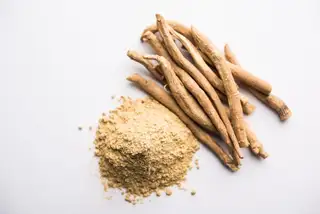
Herbs and Supplements for Arthritis
Arthritis is a common condition that causes pain, stiffness, and swelling in the joints. While there are many conventional treatments available, some people may be interested in exploring natural remedies such as herbs and supplements. In this article, we will discuss some of the herbs and supplements that may be beneficial for arthritis, how they work, and their safety.
What are the herbs?
1. Turmeric
Turmeric contains a compound called curcumin, which has powerful anti-inflammatory properties. It may help reduce pain and inflammation associated with arthritis. Turmeric can be taken in supplement form or added to food as a spice.
2. Ginger
Ginger has also been shown to have anti-inflammatory effects and may help relieve arthritis symptoms. It can be consumed as a tea, in supplement form, or added to meals.
3. Boswellia
Boswellia, also known as frankincense, is an herb that has been used for centuries to treat inflammatory conditions. It may help reduce joint pain and swelling.
4. Devil's claw
Devil's claw is a herb that may have anti-inflammatory and analgesic effects. It is often used to treat osteoarthritis and lower back pain.
5. White willow bark
White willow bark contains salicin, which is similar to aspirin and may help reduce pain and inflammation. It can be taken in supplement form.
What are the supplements?
1. Glucosamine and chondroitin
Glucosamine and chondroitin are two popular supplements for arthritis. They are natural compounds found in cartilage and may help slow the progression of osteoarthritis by providing building blocks for cartilage repair.
2. Omega-3 fatty acids
Omega-3 fatty acids have anti-inflammatory properties and may help reduce joint pain and inflammation. They can be found in fish oil supplements or obtained from fatty fish such as salmon, mackerel, and sardines.
3. MSM (methylsulfonylmethane)
MSM is a sulfur-containing compound that may help reduce pain and inflammation. It is often used in combination with glucosamine and chondroitin.
4. Vitamin D
Vitamin D is important for bone health and may also play a role in reducing inflammation. Low levels of vitamin D have been associated with an increased risk of arthritis. Vitamin D supplements may be beneficial for people with arthritis.
5. SAM-e (S-adenosylmethionine)
SAM-e is a compound that may help reduce pain and inflammation and improve joint function. It is available in supplement form.
How do they work?
1. Herbs
The herbs mentioned above work by reducing inflammation and pain in the joints. Turmeric's curcumin, ginger, boswellia, devil's claw, and white willow bark all have anti-inflammatory properties that may help relieve arthritis symptoms.
2. Supplements
Glucosamine and chondroitin work by providing the building blocks for cartilage repair. Omega-3 fatty acids reduce inflammation, MSM may help with pain and inflammation, vitamin D is important for bone health, and SAM-e may improve joint function and reduce pain and inflammation.
Is it safe?
Most herbs and supplements are generally considered safe when taken as directed. However, it is important to note that some people may experience side effects or interactions with medications.
Herbs such as turmeric, ginger, and boswellia are generally well-tolerated, but may cause stomach upset or bleeding in some people. Devil's claw and white willow bark may also cause side effects such as stomach upset, diarrhea, or headache.
Supplements such as glucosamine and chondroitin may cause mild side effects such as nausea, diarrhea, or constipation. Omega-3 fatty acids may cause fishy burps or stomach upset. MSM may cause mild side effects such as nausea or diarrhea. Vitamin D supplements can be toxic in high doses, so it is important to follow the recommended dosage. SAM-e may cause mild side effects such as nausea, headache, or insomnia.
It is also important to note that some herbs and supplements may interact with medications. For example, turmeric and ginger may interact with blood thinners, and glucosamine may interact with diabetes medications. It is important to consult with a healthcare provider before taking any herbs or supplements, especially if you are taking medications or have a medical condition.
FAQs
1. Can herbs and supplements cure arthritis?
While herbs and supplements may help relieve arthritis symptoms and slow the progression of the disease, they cannot cure arthritis. Arthritis is a chronic condition that requires ongoing management.
2. How long does it take to see results from herbs and supplements?
The time it takes to see results can vary depending on the individual and the severity of the arthritis. Some people may notice improvements within a few weeks, while others may take several months.
3. Are herbs and supplements safe for everyone?
Herbs and supplements are not safe for everyone. Some people may experience side effects or interactions with medications. It is important to consult with a healthcare provider before taking any herbs or supplements.
4. Can I take herbs and supplements with my prescription medications?
Some herbs and supplements may interact with prescription medications. It is important to consult with a healthcare provider before taking any herbs or supplements if you are taking medications.
5. Are there any natural remedies for arthritis other than herbs and supplements?
There are several natural remedies for arthritis other than herbs and supplements. These include exercise, weight management, acupuncture, and physical therapy. A healthy diet rich in fruits, vegetables, and whole grains may also help reduce inflammation and relieve arthritis symptoms.
In conclusion, herbs and supplements may be a useful addition to the treatment plan for arthritis. However, it is important to consult with a healthcare provider before taking any herbs or supplements to ensure their safety and effectiveness. Additionally, a comprehensive approach that includes exercise, weight management, and a healthy diet is essential for managing arthritis.





